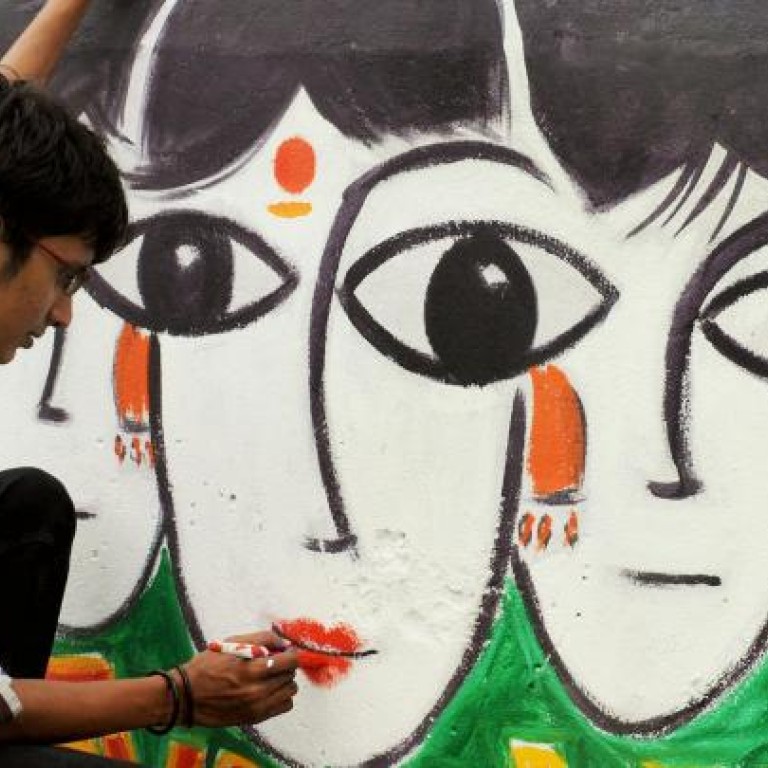
Indians start to accept organ donation
For the father of teenager Payal Mathur, it was a decision he had hoped he would never have to make. Payal died instantly after being hit by a truck just outside the Indian capital, New Delhi, in August last year. Several days later, doctors declared her brain dead. It was just three days before her 18th birthday.
"It was a very emotional and hard decision for us. But we knew our daughter had gone and it would be a good deed to help others live by donating her organs," says her father Ajay (names have been changed for reasons of confidentiality).
At BLK Super Speciality Hospital in Delhi, Payal's kidneys, eyes and liver were harvested and given to waiting patients the same day.
In India, such gestures are rare. The country has one of the highest road fatality rates in the world. More than 125,000 Indians die every year - 14 every hour - in road accidents owing to reckless driving habits. Of these annual fatalities, around 20,000 donate their organs.
But overall, India has one of the lowest organ donation rates in the world - 0.05 donations per million people, compared with Hong Kong at 4.2 patients per million, or Spain at 35 patients per million.
If the road death figures could be matched with the huge need for organ donations, millions of Indians suffering from liver or kidney failure or other ailments would live. Most die after a very long wait.
The ease with which people can donate organs varies enormously from state to state, with some maximising red tape in such a way as to deter all but the most determined, and others minimising the bureaucracy. Tamil Nadu in south India, for example, boasts the much higher figure of 1.2 donors per million people.
In a country where power, connections and money can get you virtually anything, organs stand out as the exception. Top politician Vilasrao Deshmukh died of liver cancer last August after waiting in vain for a donor.
Imagine, therefore, the plight of ordinary people such as garment exporter Jagdish Brara from Chandigarh, northern India, whose heavy drinking led to liver disease at the age of 51. "I've been waiting six months and it's getting desperate. When I was healthy, I was totally unaware of this problem. Now I've told my wife and parents to become donors so that other people can live," says Brara.
Public awareness is beginning to improve owing to families such as the Mathurs receiving widespread publicity, people hearing of the death of a friend or relative while waiting for a donor, or realising how a donation has saved the life of someone they knew.
In Kerala, even before the Mathurs featured in the media, all the 2,000 adult residents of Pootharakkal village pledged to donate their organs to the Kidney Federation of India after their death.
They were inspired by a Catholic priest, Father Davis Chiramel, who had given the village electrician a new life by donating a kidney to him two years ago. Both of them spread the word in the village and their campaign gained traction in September last year with the signing, en masse, of consent papers.
Father Davis plans to collect one million organ donation consent papers. "It is simply human kindness to let others live but not enough people apply their minds to the issue," he says.
And in the state of Maharashtra, where organ donation is a particularly cumbersome and slow business, the government plans to print college admission forms with a new column for students who wish to donate their organs.
For those who agree, their willingness will be noted on their identity cards and driving licences. The policy was conceived following the shock over the death of Deshmukh, who was a former chief minister of the state.
But cultural and religious impediments to widespread organ donation remain. Hindus tend to believe the body should be "whole" at the time of cremation for funeral rites to be conducted properly.
"Some Hindus say it is both impure and disrespectful to the dead to remove their organs. The idea of taking an organ out of a corpse and inserting it into another is frowned upon because a dead body is regarded as impure, and so transplanting a bit of it into a live body compounds the impurity," says Swami Akhilesh, a Hindu priest in New Delhi.
Even those who admire the idea of organ donation can, when faced with the prospect of their relative's body being tampered with, change their mind.
When the famous Bengali author Sunil Gangopadhyay died last October, his entire family knew that he had pledged his organs.
After his cremation, they revealed that they had disregarded his wishes. "It's a very personal matter, basically, and every family is different. We simply could not go through with it," his son Souvik was quoted as saying.
Mathur says it was a shame that the family went against the author's wishes, but can understand the emotional struggle.
"You have to take the decision when you are paralysed by grief. You're in shock. I didn't want my daughter's body to be cut open. But it seemed selfish not to give her organs and she would not have approved of a selfish act," he says.

